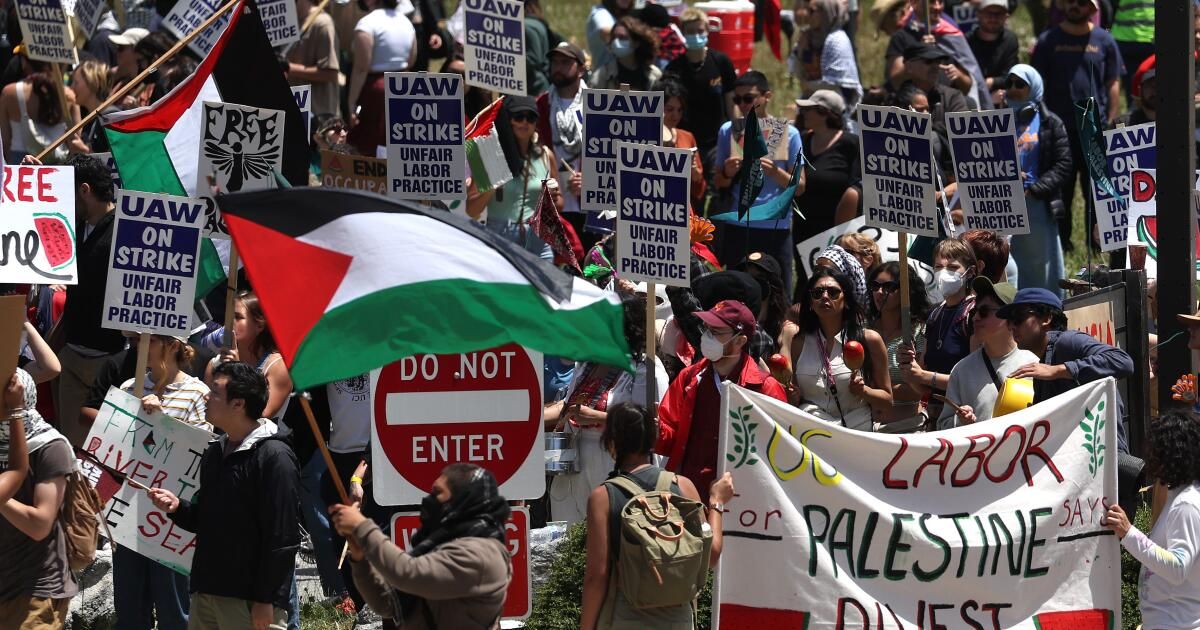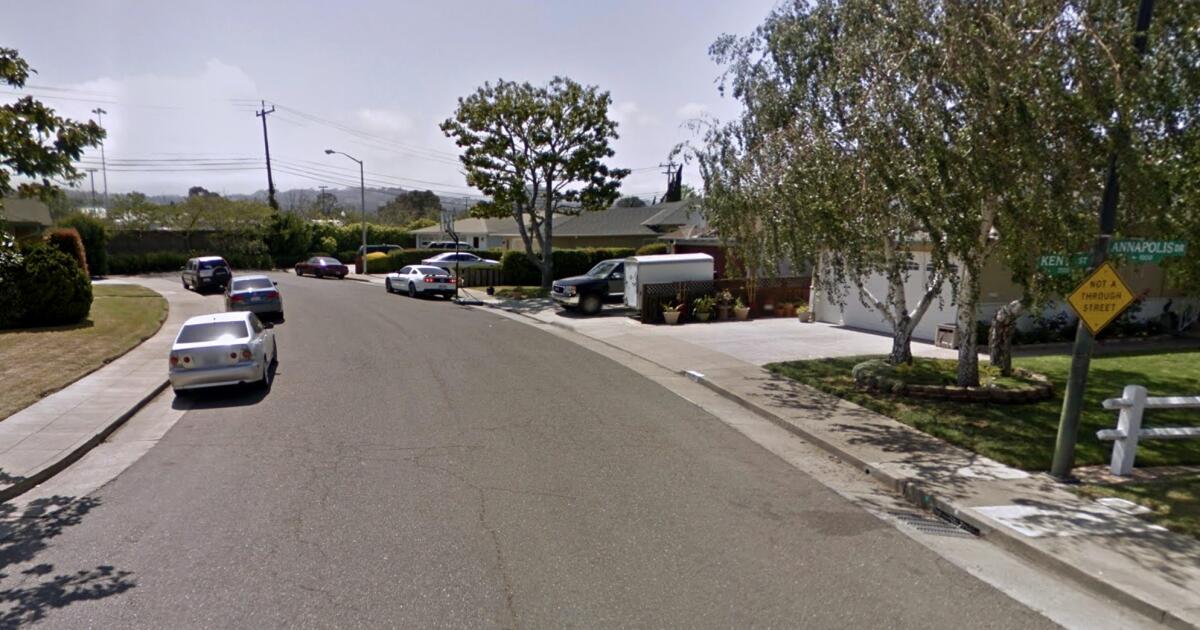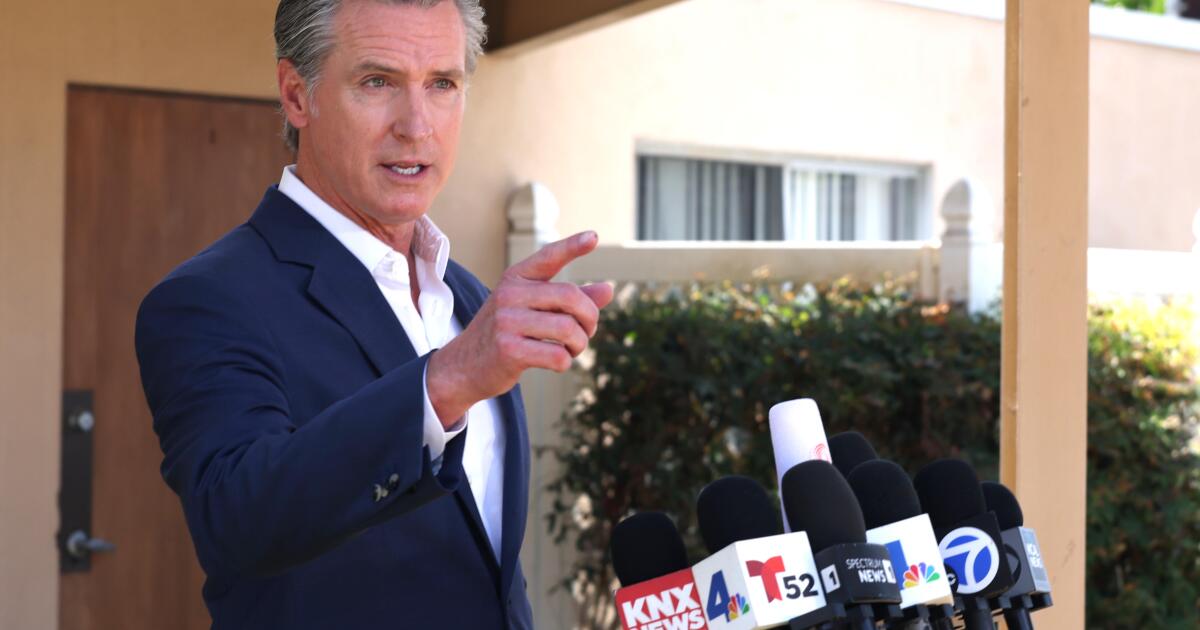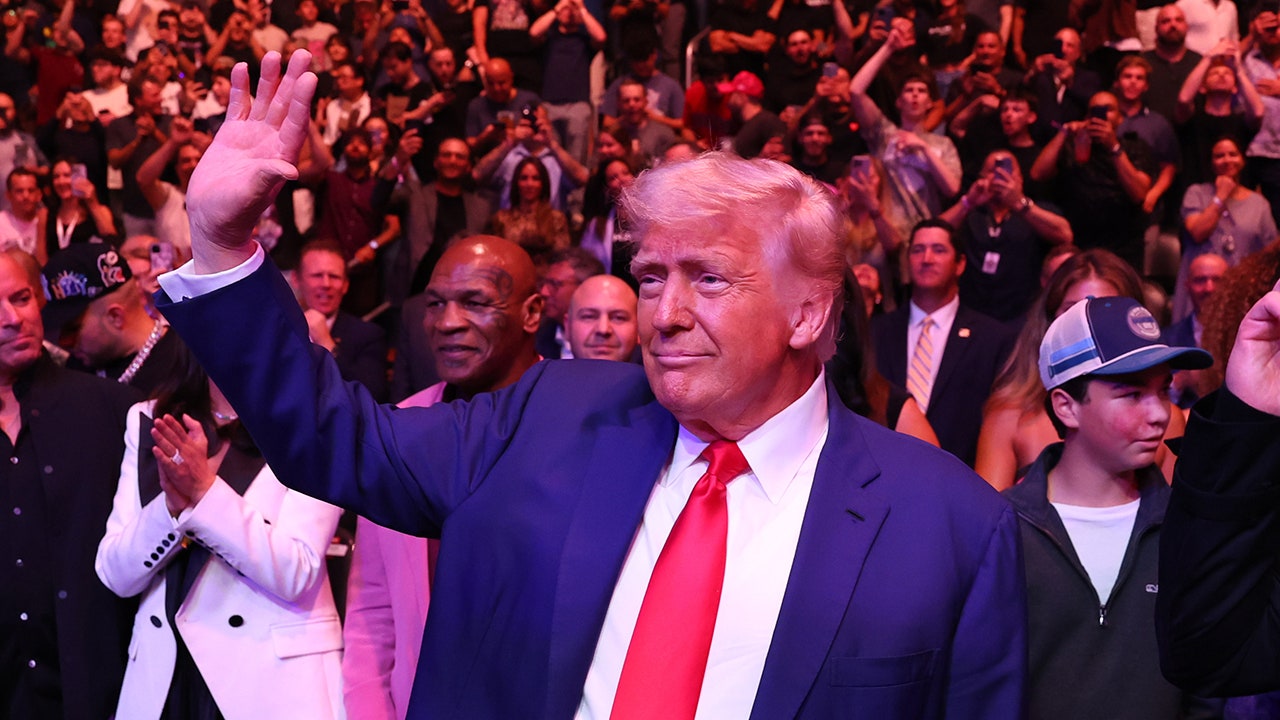Academic workers at UCLA and UC Davis are poised to go on strike starting Tuesday, alleging that the University of California's actions have violated their labor rights during pro-Palestinian protests and the camp crackdown.
United Auto Workers Local 4811, which represents 48,000 graduate students, teaching assistants, tutors, researchers and others across UC's 10 campuses and Lawrence Berkeley National Laboratory, launched the continuing strike last week at UC Santa Cruz. The strikes unfold at a critical time in the academic year, when classes end and final projects, final exams and grades lie ahead, work in which union members play a key role.
The planned expanded strike would be one of the largest actions by an American union in support of the Palestinians and comes as university leaders face scrutiny for calling in police in riot gear to clear pro-Palestinian camps.
“I think the union is in a position to really raise this issue on the national stage and challenge kind of the dominant discourse and status quo,” said Gene McAdoo, a doctoral student at the UCLA School of Education and Information Studies.
UC officials charge that the strikes are illegal. However, his urgent request to the state labor board to immediately stop the strike was rejected by the panel, which ruled Thursday that UC's allegations did not meet the legal standard for intervention.
Academic workers maintain their free speech rights were violated when system leaders asked police to forcibly remove pro-Palestinian camps on several campuses and UCLA activists were not protected from an attack on the camp by counterprotesters for hours. Police subsequently dismantled the UCLA camp and made around 200 arrests, including some striking union members.
Rafael Jaime, president of UAW 4811, was at the camp during the attack in late April and witnessed the violence. He praised the labor board's denial of UC's request for injunctive relief, saying it “demonstrates that no employer can set its own rules.”
Union leaders' demands include protecting free speech on campus; an amnesty for all academic employees, students, student groups, faculty and staff who face disciplinary action or arrest due to their participation in protests; and the university's divestment from “weapons manufacturers, military contractors and companies that profit from Israel's war on Gaza.”
University officials have claimed that the strike is illegal because the goal is to “pressure the University to give in to a list of politically motivated demands closely tied to protests occurring in California and across the country.”
On May 10, the union filed charges with the state labor board related to the treatment, university discipline, and arrests of union members at UCLA and other campuses, including UC San Diego and UC Irvine. The charge accuses universities of retaliating against workers and illegally changing workplace policies to suppress pro-Palestinian speech.
The UC also filed an unfair labor practice complaint with the labor board, alleging that the union's decision to leave the union violated the no-strike provision contained in its collective agreements. Both charges are pending.
The strike comes amid continued unrest on the UCLA campus.
On Thursday, UCLA Chancellor Gene Block and two other university presidents testified before a Republican-led House Education and Workforce Committee, which is investigating anti-Semitism on campuses across the country. In his opening remarks to the panel, Block said that, “in retrospect,” the university should have acted to “immediately remove” the camp that pro-Palestinian protesters established in late April “as long as the safety of our community was at risk”.
Block was also questioned about complaints that pro-Palestinian protesters prevented Jewish students from accessing parts of the campus.
Later that day, more than two dozen officers in riot gear responded to the Westwood campus to remove a small encampment that protesters had erected.












